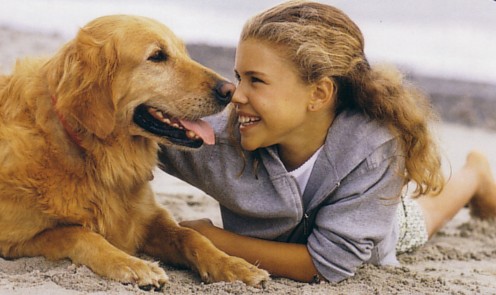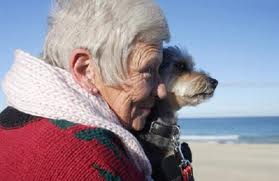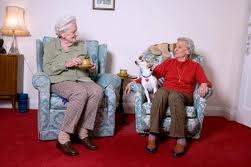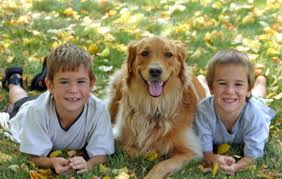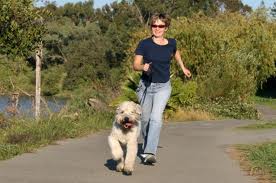Thoughts of an Animal Advocate:
I'll never bring about world peace.
I won't single-handedly save the rain forest.
I'm not a brain surgeon and I'll never transplant an organ to save a life.
I don't have the ear of a powerful politician or world power.
I can't end world hunger.
I'm not a celebrity, and God knows I'm not glamorous!
I'm not looked up to by millions around the world.
Very few people even recognize my name.
I'll never win the Nobel prize or end global warming.
There are a lot of things that I'll never do or become.
But today I helped place an animal in a loving home!
It was a small, scared, bundle of flesh and fur that was dumped at the shelter, or on the streets by unfeeling people who didn't care what happened to it, but yet who were responsible for it having existence in the first place.
I helped find it a loving home.
It now has contentment and an abundance of love, and a warm place to sleep and plenty to eat.
Two little girls have a warm and playful new friend who will give them unending affection and teach them about responsibility and love.
A wife and mother has a new free spirit to cuddle, nurture and care for.
A husband and father has a furry friend to sit in his lap at the end of a hard day of work and help him relax and enjoy life and a sense of satisfaction, that when he is gone all day at work, that there is a gentle spirit in his home keeping watch over his family.
No, I'm not a rocket scientist. But today, I made a difference!
And I'll do it tomorrow, too, if given a chance!
The Many Benefits of
Having Pets:
Pet owners have fewer health problems.
Pet owners have better psychological well-being.
Seniors who own dogs go to the doctor less than those who do not. In a study of 100 Medicare patients, even the most highly stressed dog owners in the study has 21 percent fewer physician's contacts than non-dog owners.
The activity level of seniors who did not currently own pets deteriorated more on average than that of respondents who currently owned pets.
Seniors who own pets coped better with stress.
Pet owners have lower blood pressure, lower triglyceride and cholesterol levels than non-owners.
Companionship of pets (particularly dogs) helps children in families adjust better to the serious illness and death of a parent.
Pet owners feel less afraid of being a victim of crime when walking with a dog or sharing a residence with a dog.
Contact with pets develops nurturing behavior in children who may grow to be more nurturing adults (Melson, 1990).
Pet owners have a higher on-year survival rates following coronary heart disease (Friedman, 1980, 1995).
Medication costs dropped from an average of $3.80 per patient per day to just $1.18 per patient per day in new nursing home facilities in New York, Missouri and Texas that have animals and plants as an integral part of the environment.
Pets in nursing homes increase social and verbal interactions.
Pet owners have better physical health due to exercise with their pets.
Having a pet may decrease heart attack mortality by 3%. This translates into 30,000 lives saved annually (Friedman, 1980).
Dogs are preventive and therapeutic measures against everyday stress (Allen, 1991).
Pets decrease feeling of loneliness and isolation.
Children exposed to humane education programs display enhanced empathy for humans compared with children not exposed to such programs. (Ascione, 1992).
Positive self-esteem of children is enhanced by owning a pet. (Bergensen, 1989).
Children's cognitive development can be enhanced by owning a pet. (Poresky, 1988).
70% of families surveyed reported an increase in family happiness and fun subsequent to pet acquisition.
The presence of a dog during a child's physical examination decreases their stress. (Nadgengast, 1997, Baun, 1998).
Children owning pets are more involved in activities such as sports, hobbies, clubs or chores.
Children exposed to pets during the first
year of life have a lower frequency of allergic
rhinitis and asthma. (Hesselmar, 1999).
Animals seem to help children with autism.
Pets fulfill many of the same support functions as humans for adults and children.
People who have AIDS that have pets have less depression and reduced stress. Pets are a major source of support and increase perception the ability to cope. (Siegel, 1999, Carmack, 1991).
"What is man without the beasts?
If all the beasts were gone,
men would die from great loneliness of spirit.
For whatever happens to the beasts, soon happens to man,
All things are connected."
--- Chief Seattle
We have the right to be full members of your family. We thrive on social interaction, praise, and love.
We have the right to stimulation. We need new games, new toys, new experiences, and new smells to be happy.
We have the right to regular exercise. Without it, we could become hyper, sluggish...or fat.
We have the right to have fun. We enjoy acting like clowns now and then; don't expect us to be predictable all the time.
We have the right to quality health care. Please stay good friends with our vet.
We have the right to a good diet. Like some people, we don't know what's best for us. We depend on you.
We have the right not to be rejected because of your expectations that we be great show dogs or show cats, watchdogs, hunters, or baby-sitters.
We have the right to receive proper training. Otherwise, our good relationship could be marred by confusion and strife--and we could become dangerous to ourselves and others.
We have the right to guidance and correction based on understanding and compassion, rather than abuse.
We have the right to live with dignity...and to die with dignity when the time comes.
